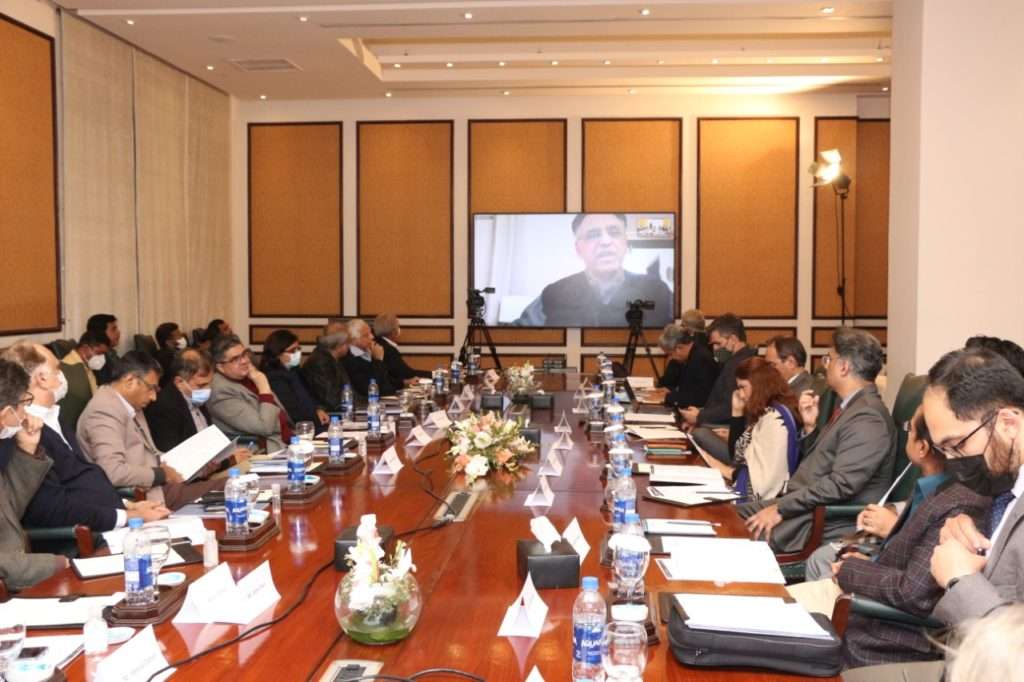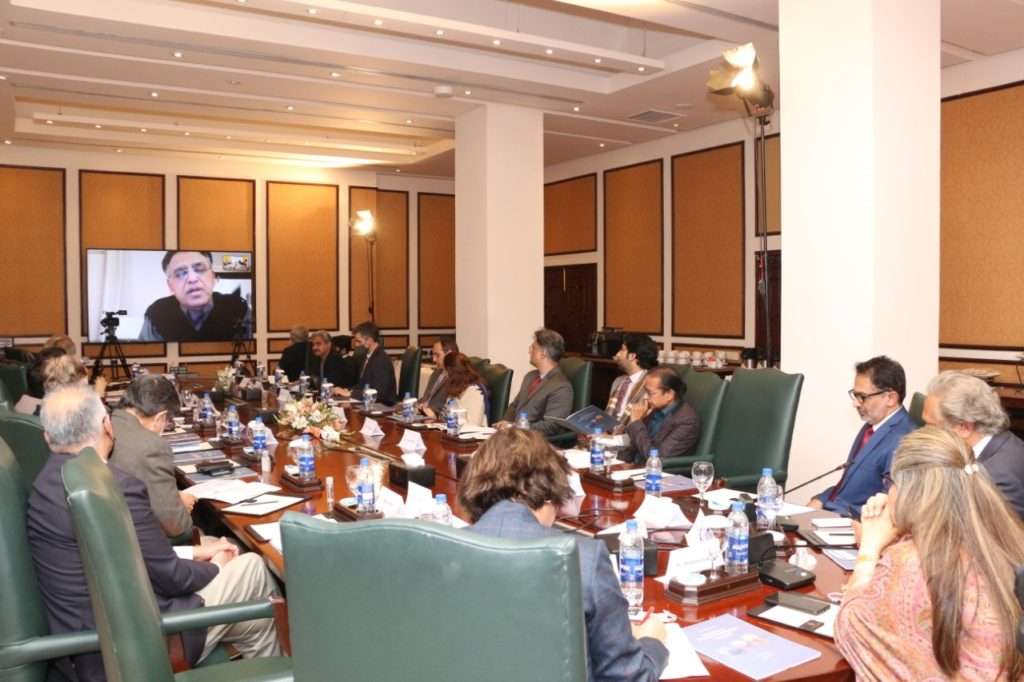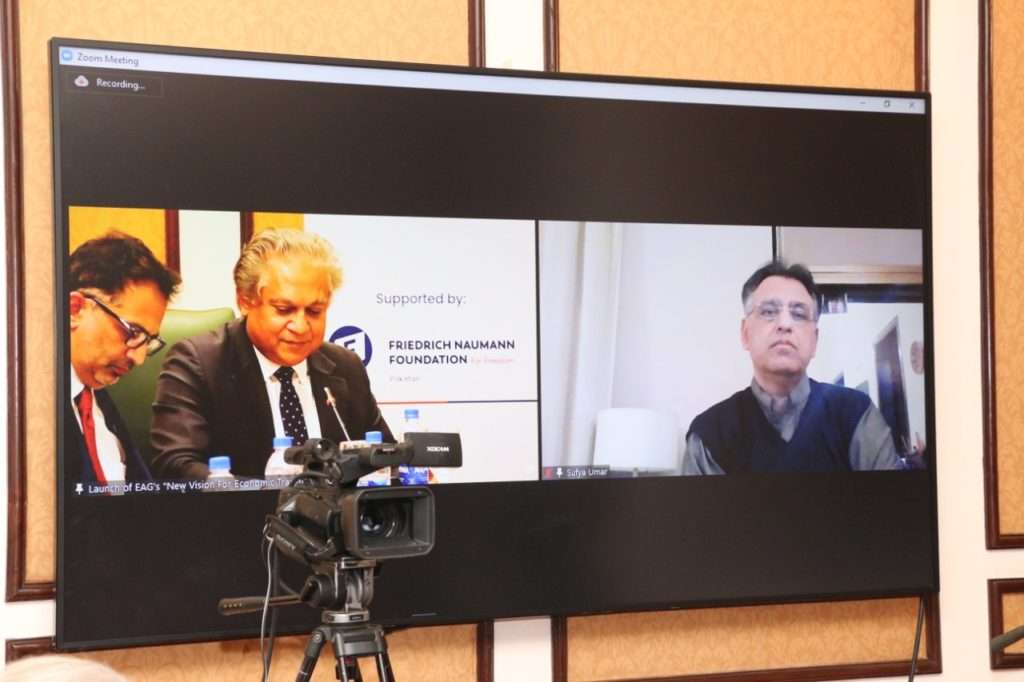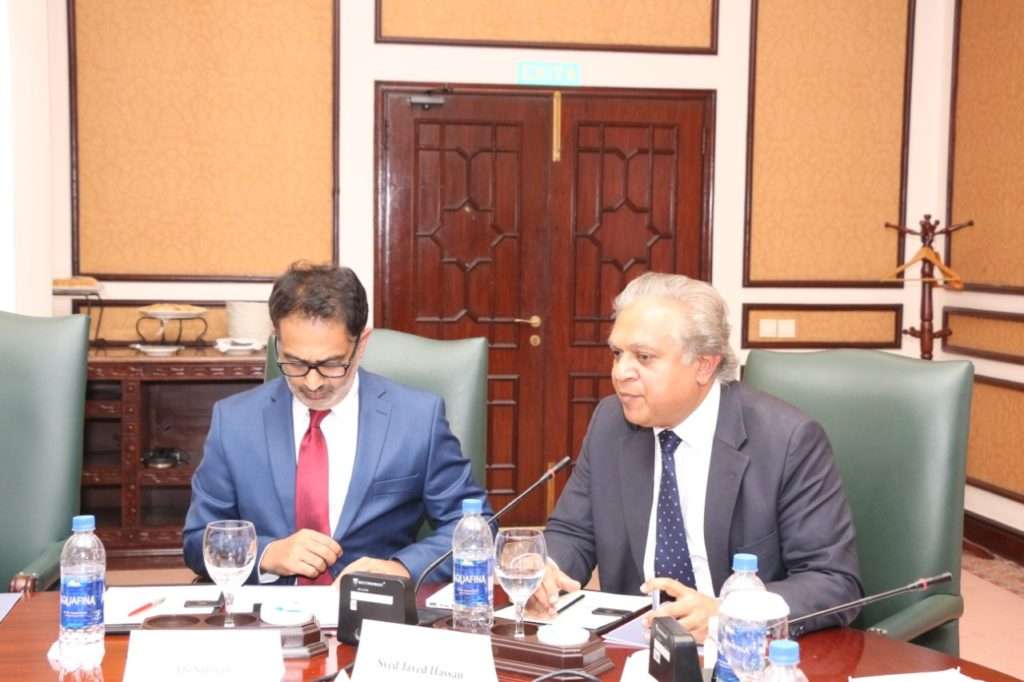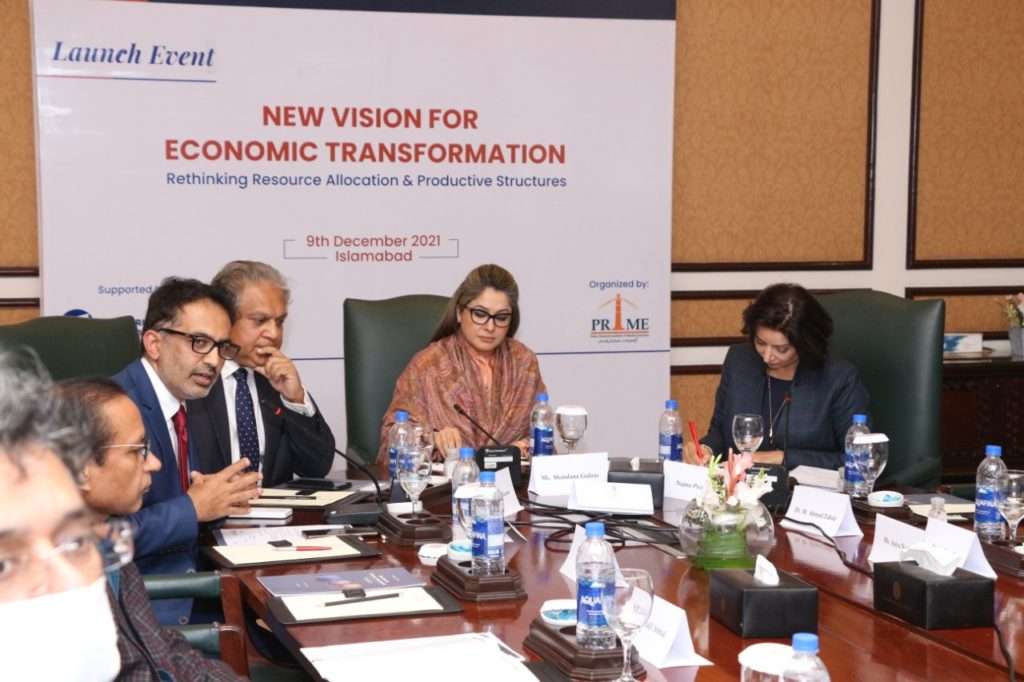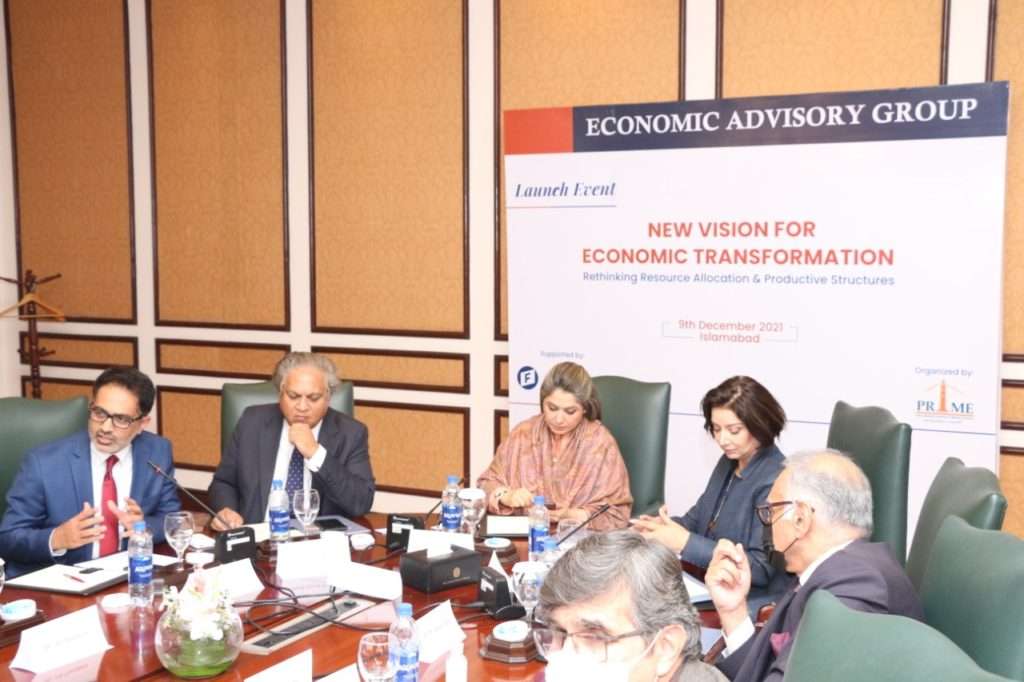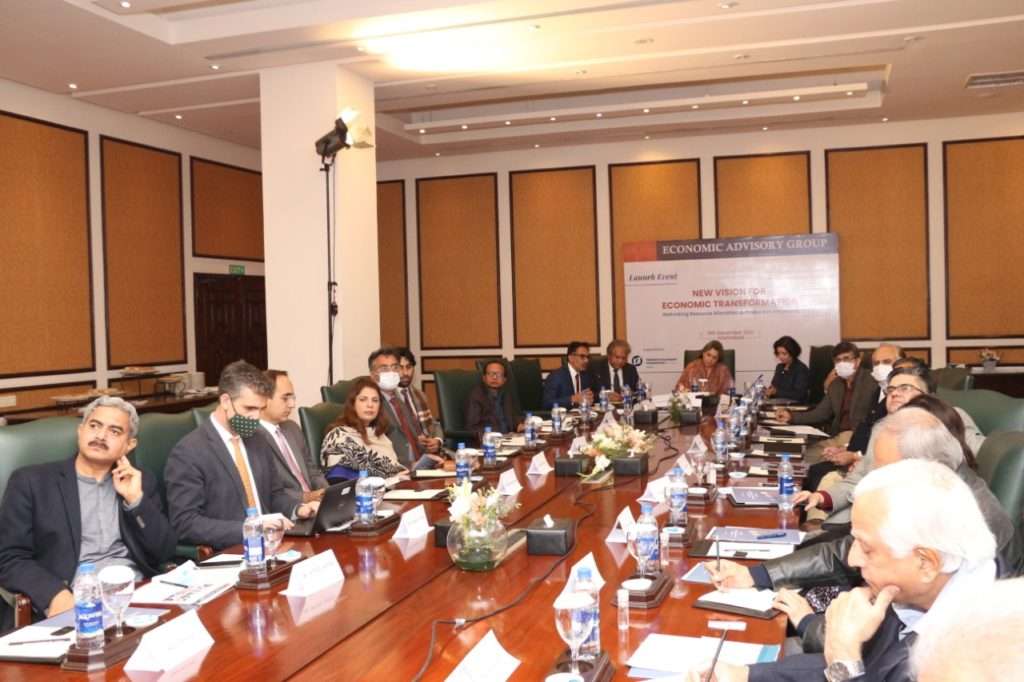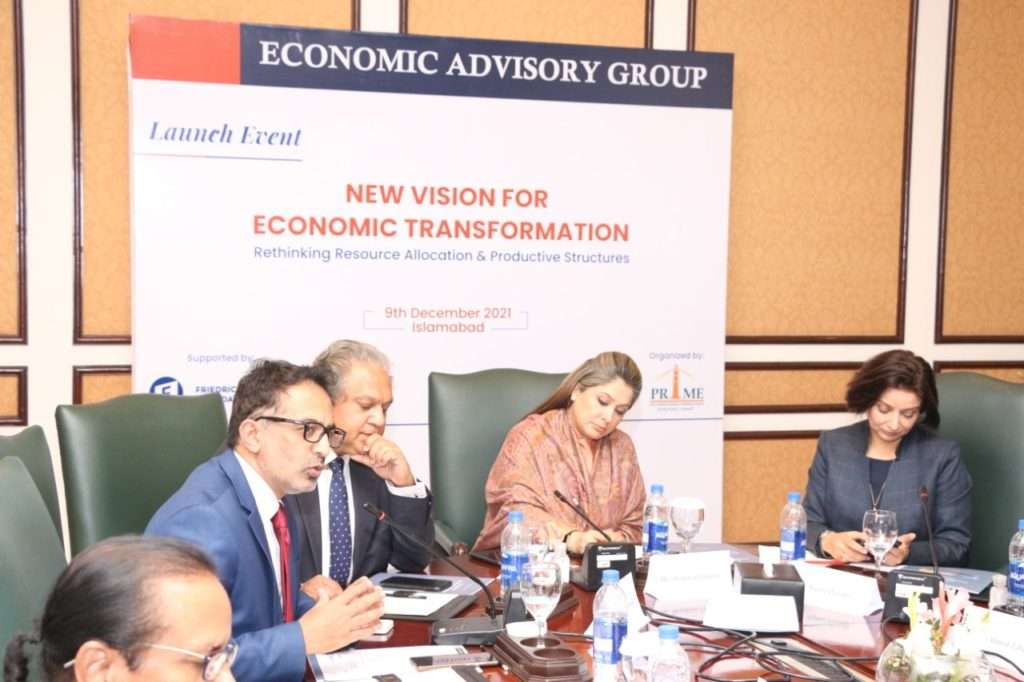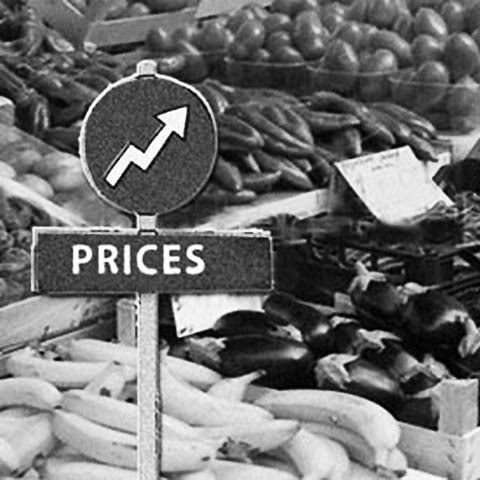Roadmap for Economic Transformation launched
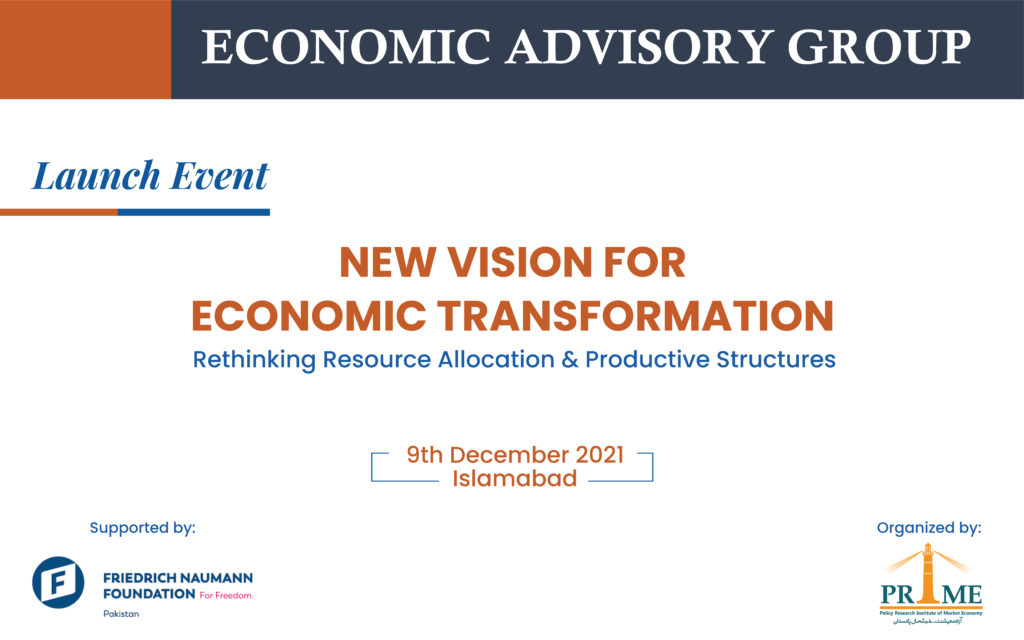
December 10th, 2021
The Economic Advisory Group (EAG) has launched a document “New Vision for Economic Transformation”, which analyses the factors hindering the efficient allocation of resources hence contributing to the economic slowdown, and presents practical suggestions. The document was presented by Mr. Javed Hassan, Chairman EAG, and Mr. Ali Salman, Executive Director PRIME.
Mr. Asad Umar, Federal Minister for Planning, Development, Reforms, and Special Initiatives expressed his views at the launch as,
In Pakistan, we lack discourse on economic transformation among the intelligentsia. EAG is a good initiative and you are making a really good and tangible contribution by putting specific ideas on the table for discussion. This vision document is a good start to translate that from global learnings to what has happened in Pakistan. The more competitive landscape we create, the more chances there are for transformation.
He cited an example of transformation in the telecommunication sector where investment has contributed to a local assembly of mobile phones in the country.
Ms. Shandana Gulzar, Member National Assembly, commented during the panel discussion that
The markets and firms in Pakistan are not adhering to the international standards, which has resulted in a decline in exports. The sugar industry is highly protected in the distribution and production phases, through tools such as special regulatory duty and minimum support price, but the benefits have never reached farmers. We have selected winners and losers. The federal subsidy is directed more to the industrial sector and less to the agriculture sector despite having a lesser contribution to the GDP. This illustrates distortions from the misallocation of resources. We not only have to ensure efficient allocation of resources and better implementation but also build an expeditious judicial system.
Dr. Muhammad Ahmed Zubair, Chief Economist Planning Commission, stated that this vision document presents suggestions that can become the basis of further research to support the transformation agenda and contribute to policymaking.
Dr. Ali Hasanain, Head of Economics Department LUMS, congratulated EAG for putting ideas of transformation in one document at the launch. According to him, the core strength of this document is that it articulated economy is not about production but productivity and how contestable markets are. The contestability comes from creating a level playing field, which has not happened in Pakistan. Therefore, we have to provide a level playing field for which institutions are important with the core responsibility of security of life, property rights, and contract enforcement.
The suggestions put forth in the document are organized under four themes: revisiting pricing regimes that currently govern agriculture and commodities sectors; revamping of the education system with the aim to introduce and mainstream pathways for vocational training at the level of higher and post-secondary education; reduction in tariff and non-tariff trade restrictions and greater integration with regional trade blocs; and, finally, rethinking industrial policy with special emphasis on moving away from picking winners to rewarding innovators, improving land-use within cities, and simplification of the tax code.
The Economic Advisory Group is an independent platform of individuals drawn from economics, policy, and the private sector, formed in January 2021, under the auspices of PRIME Institute, an independent think tank, which serves as its secretariat.
For media inquiries, please contact Afzal Khan at afzal@primeinstitute.org or 0333-0588885.


